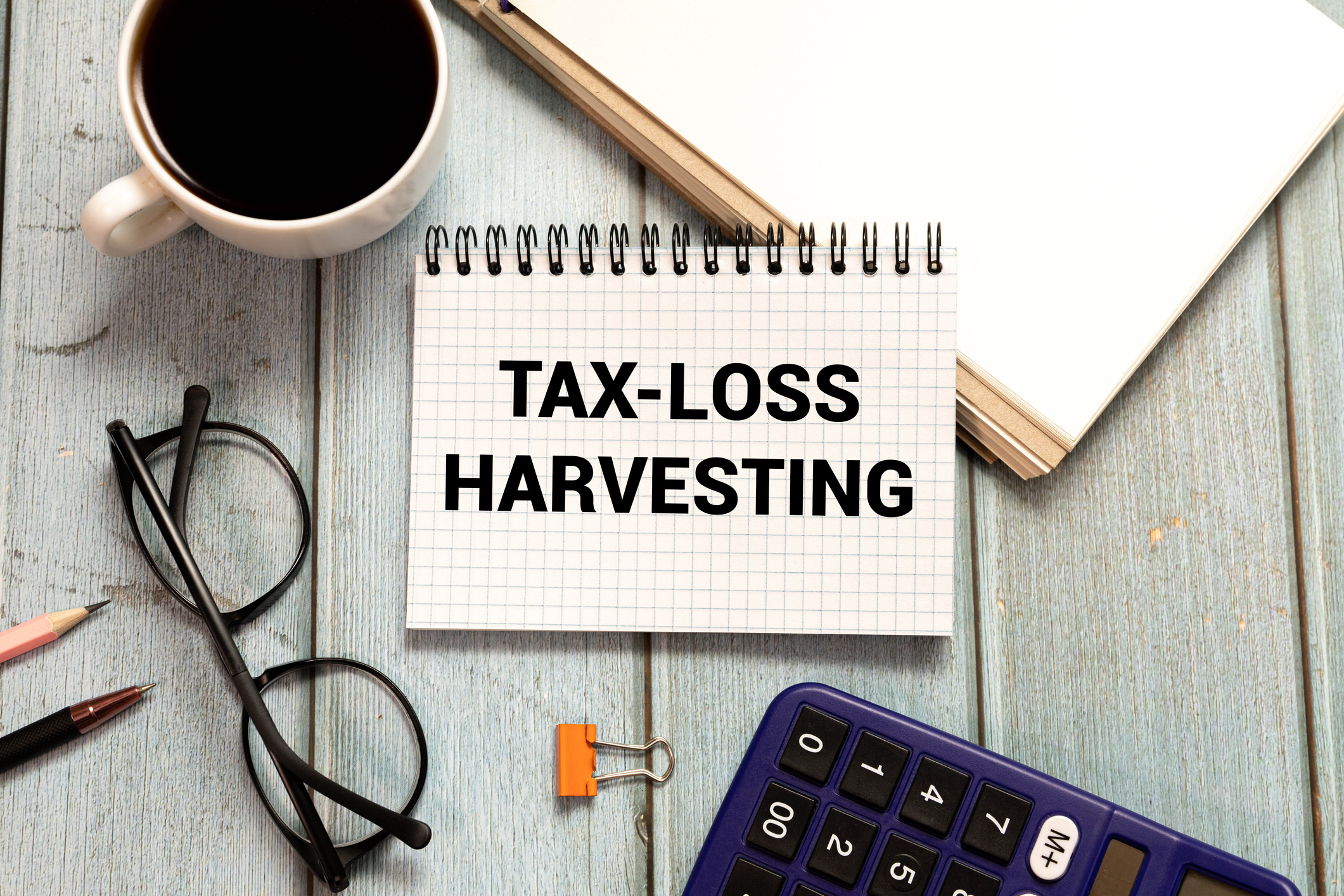3 Key Investing Moves to Make Before the End of the Year
As we approach the end of the calendar year, it's a good time for investors to think about taxes, diversification and investment limits.

Profit and prosper with the best of Kiplinger's advice on investing, taxes, retirement, personal finance and much more. Delivered daily. Enter your email in the box and click Sign Me Up.
You are now subscribed
Your newsletter sign-up was successful
Want to add more newsletters?

Delivered daily
Kiplinger Today
Profit and prosper with the best of Kiplinger's advice on investing, taxes, retirement, personal finance and much more delivered daily. Smart money moves start here.

Sent five days a week
Kiplinger A Step Ahead
Get practical help to make better financial decisions in your everyday life, from spending to savings on top deals.

Delivered daily
Kiplinger Closing Bell
Get today's biggest financial and investing headlines delivered to your inbox every day the U.S. stock market is open.

Sent twice a week
Kiplinger Adviser Intel
Financial pros across the country share best practices and fresh tactics to preserve and grow your wealth.

Delivered weekly
Kiplinger Tax Tips
Trim your federal and state tax bills with practical tax-planning and tax-cutting strategies.

Sent twice a week
Kiplinger Retirement Tips
Your twice-a-week guide to planning and enjoying a financially secure and richly rewarding retirement

Sent bimonthly.
Kiplinger Adviser Angle
Insights for advisers, wealth managers and other financial professionals.

Sent twice a week
Kiplinger Investing Weekly
Your twice-a-week roundup of promising stocks, funds, companies and industries you should consider, ones you should avoid, and why.

Sent weekly for six weeks
Kiplinger Invest for Retirement
Your step-by-step six-part series on how to invest for retirement, from devising a successful strategy to exactly which investments to choose.

Depending on their circumstances, each individual has a different list of the best investing moves to make before the end of the year. But there are a few broad categories of actions that make sense for most folks.
These general tips include making sure your portfolio is diversified and that you're making the best decisions to maximize your tax efficiency and long-term returns.
Every investor has a different risk tolerance, so you should always make the best decisions for your unique situation. These three end-of-year investing moves are a good place to start.
From just $107.88 $24.99 for Kiplinger Personal Finance
Become a smarter, better informed investor. Subscribe from just $107.88 $24.99, plus get up to 4 Special Issues

Sign up for Kiplinger’s Free Newsletters
Profit and prosper with the best of expert advice on investing, taxes, retirement, personal finance and more - straight to your e-mail.
Profit and prosper with the best of expert advice - straight to your e-mail.
1. Tax-loss harvesting

Tax-loss harvesting is a fancy term for intentionally selling an investment at a loss to offset the taxes you'd pay on gains in other, more profitable trades.
The U.S. tax code is incredibly complicated, and it would take a separate article or two to explain it. (You can check out the Taxes section on Kiplinger.com to find more tax-specific information.) But in a nutshell, capital gains taxes on investments held for less than 12 months typically correspond to your normal income tax rate, which can be as high as 37%. That can really eat into your profits if you're paying Uncle Sam more than a third of what you've gained.
However, it's all about net profits. So if you make $8,000 on a short-term investment but lock in $4,000 in losses in another asset you were planning on selling anyway, you only pay taxes on the $4,000 that's not offset. What's more, if your losses exceed your gains, you can deduct up to $3,000 in net losses from your total annual income.
It may sound counterintuitive, but selling a losing stock position is an important year-end tool for investors when it comes to reducing tax burdens.
2. Rebalancing your portfolio

Nothing in life stays the same, including your investment portfolio. That means you need to take some time at least once per year to "rebalance" your investments to ensure the mix of assets is in line with your intentions and goals.
Let's take the popular 60/40 approach to investing, which is a portfolio that holds 60% stocks and 40% bonds. If you're lucky enough to be invested in a few high-flying stocks such as Robinhood (HOOD) or Palantir (PLTR) that have handily outperformed bonds, you could find that your mix is more like 70/30 or even 80/20.
That's a good problem to have when your stocks have grown rapidly. But it also comes with additional risk as you are now putting more eggs in those baskets. To stay truly diversified, it may make sense to rebalance by selling some of your outperforming stocks and moving that cash into bonds to get back to the proper mix.
After all, stocks can rise quickly but can also fall quickly. So, when considering your end-of-year investing checklist, don't overlook your long-term strategy based on short-term trends that have changed your portfolio's makeup.
3. Consider annual limits

Not everyone has extra cash to spare right now. But if you do, it's worth considering how much headroom you have left on various tax-efficient investing vehicles.
For instance, the maximum contribution to a 401(k) in 2025 is $23,500. If you are getting a big bonus or if you can spare a few extra bucks from your final paycheck, consider tightening your belt for a pay period or two and allocating extra money to your tax-deferred retirement plan as an end-of-year investing move.
The same holds true for 529 education plans. There are aggregate contribution limits and other restrictions that vary by state, and are worth researching on your own. But keep in mind that individuals other than yourself can contribute to a 529 plan in many cases. This means generous grandparents, aunts and others can opt for a long-term holiday gift to your child's education rather than the latest toys or fashion items.
Lastly, while IRA contributions are most often limited by the tax filing deadline in April rather than the end of the calendar year, the next four months may go quickly. So, if you're doing some of this other year-end financial housekeeping, it's worth considering whether you want to max out your IRA based on the 2025 maximum contribution of $7,000 for those under 50.
Related content
Profit and prosper with the best of Kiplinger's advice on investing, taxes, retirement, personal finance and much more. Delivered daily. Enter your email in the box and click Sign Me Up.

Jeff Reeves writes about equity markets and exchange-traded funds for Kiplinger. A veteran journalist with extensive capital markets experience, Jeff has written about Wall Street and investing since 2008. His work has appeared in numerous respected finance outlets, including CNBC, the Fox Business Network, the Wall Street Journal digital network, USA Today and CNN Money.
-
 Quiz: Do You Know How to Avoid the "Medigap Trap?"
Quiz: Do You Know How to Avoid the "Medigap Trap?"Quiz Test your basic knowledge of the "Medigap Trap" in our quick quiz.
-
 5 Top Tax-Efficient Mutual Funds for Smarter Investing
5 Top Tax-Efficient Mutual Funds for Smarter InvestingMutual funds are many things, but "tax-friendly" usually isn't one of them. These are the exceptions.
-
 AI Sparks Existential Crisis for Software Stocks
AI Sparks Existential Crisis for Software StocksThe Kiplinger Letter Fears that SaaS subscription software could be rendered obsolete by artificial intelligence make investors jittery.
-
 5 Top Tax-Efficient Mutual Funds for Smarter Investing
5 Top Tax-Efficient Mutual Funds for Smarter InvestingMutual funds are many things, but "tax-friendly" usually isn't one of them. These are the exceptions.
-
 Why Invest In Mutual Funds When ETFs Exist?
Why Invest In Mutual Funds When ETFs Exist?Exchange-traded funds are cheaper, more tax-efficient and more flexible. But don't put mutual funds out to pasture quite yet.
-
 Social Security Break-Even Math Is Helpful, But Don't Let It Dictate When You'll File
Social Security Break-Even Math Is Helpful, But Don't Let It Dictate When You'll FileYour Social Security break-even age tells you how long you'd need to live for delaying to pay off, but shouldn't be the sole basis for deciding when to claim.
-
 I'm an Opportunity Zone Pro: This Is How to Deliver Roth-Like Tax-Free Growth (Without Contribution Limits)
I'm an Opportunity Zone Pro: This Is How to Deliver Roth-Like Tax-Free Growth (Without Contribution Limits)Investors who combine Roth IRAs, the gold standard of tax-free savings, with qualified opportunity funds could enjoy decades of tax-free growth.
-
 One of the Most Powerful Wealth-Building Moves a Woman Can Make: A Midcareer Pivot
One of the Most Powerful Wealth-Building Moves a Woman Can Make: A Midcareer PivotIf it feels like you can't sustain what you're doing for the next 20 years, it's time for an honest look at what's draining you and what energizes you.
-
 Stocks Make More Big Up and Down Moves: Stock Market Today
Stocks Make More Big Up and Down Moves: Stock Market TodayThe impact of revolutionary technology has replaced world-changing trade policy as the major variable for markets, with mixed results for sectors and stocks.
-
 I'm a Wealth Adviser Obsessed With Mahjong: Here Are 8 Ways It Can Teach Us How to Manage Our Money
I'm a Wealth Adviser Obsessed With Mahjong: Here Are 8 Ways It Can Teach Us How to Manage Our MoneyThis increasingly popular Chinese game can teach us not only how to help manage our money but also how important it is to connect with other people.
-
 Looking for a Financial Book That Won't Put Your Young Adult to Sleep? This One Makes 'Cents'
Looking for a Financial Book That Won't Put Your Young Adult to Sleep? This One Makes 'Cents'"Wealth Your Way" by Cosmo DeStefano offers a highly accessible guide for young adults and their parents on building wealth through simple, consistent habits.